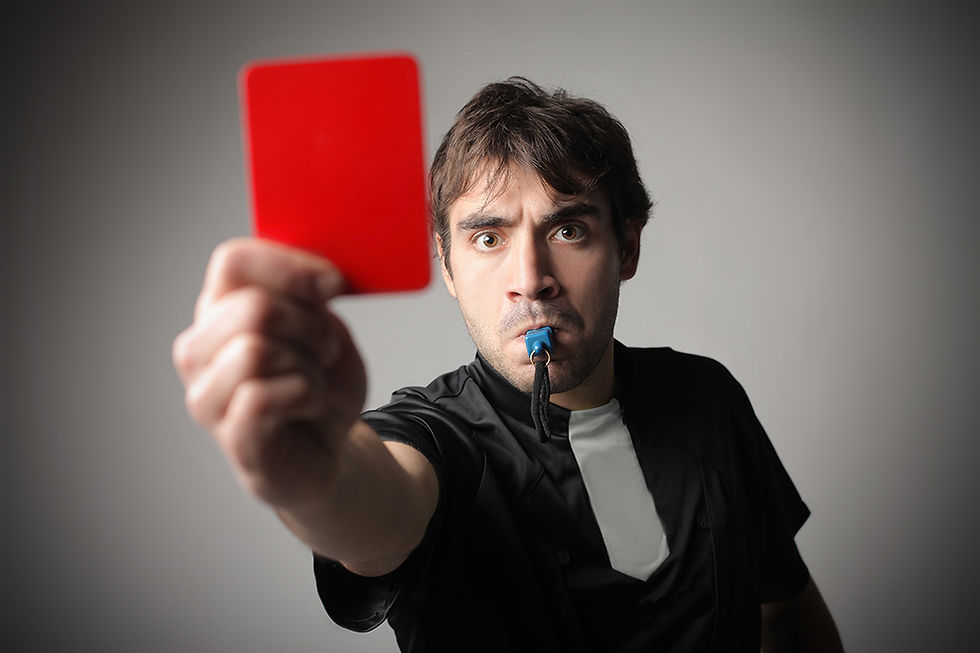
Being interviewed by a journalist for this week’s Sunday Times (7th Jan 2018) about the pressures on football referees spurred me on to write a blog entry about the issues. The primary question was:
Does sports psychology offer anything for football referees?
I think so.
While football referees aren’t playing football, they are having to perform their duties on the pitch and are getting judged by others. Their decisions, actions and lack of action, will be evaluated by all who care – the players, the managers and other staff, the fans at the match, and those watching on TV. Some observer's reactions are reasonable and fair; others will be more emotional and biased. On the pitch, the referee needs to keep focused on the game, on what his happening at that particular time. The reactions and verbal comments from players, managers and the crowd need to be weathered, not pushing them off course or off task. They, like the players, need to stay focused on the game – not on actions that happened a while ago, as this will distract them from their current task of refereeing.
Nowadays there are more challenges than ever for refs to weather – video replay from more angles than ever and social media where anyone with an opinion can give it.
Receiving negative feedback or criticism is a difficult thing for us to take. For some of us this is more difficult than for others. At times of additional life stress, we have less capacity left to manage other stress. So a referee’s coping and robustness can vary over time, as well it varying from referee to referee.
So, what would sports psychology suggest to referees to manage their career as a referee?
Prepare: Prior to a match be clear on your task, on what you will be wanting to focus on (e.g., there may be an aspect of your refereeing that you are work on, a weakness). You may want to imagine how the game might go, how you will respond to challenges, what you might say to yourself to weather negative comments etc.
Execute your plan: During the match, do what you planned to do. Back yourself. Encourage yourself.
Reflect: After the match do your usual post-match analysis of how you did and try to extract any learning. Be selective on what sources of information you use – limit or more ideally, completely avoid, biased and poor sources of data.
Contrast: Go off and do something different, spend time with people who aren’t going to talk about the match or your performance. Get a break to let things settle.
In many ways, this overlaps with what I have also done with players who need help to manage negative feedback from fans and social media.
On a final point, it’s not just referees in football who have this challenge. Referees and officials from other sports have sought me out to help them manage the verbal abuse and threats that they have received from players, coaches or managers. Without referees, umpires or other officials, games simply can’t happen. We need to support and help develop the robustness or resilience of officials. We also need to consider how reasonable the ‘feedback’ is to these officials. They have the right to be treated reasonably, to not suffer abuse, threats or even worse.
If you, or someone you know, could benefit from some help to manage their performance situation – as a referee, official, manager, coach or other staff – then get in touch.
